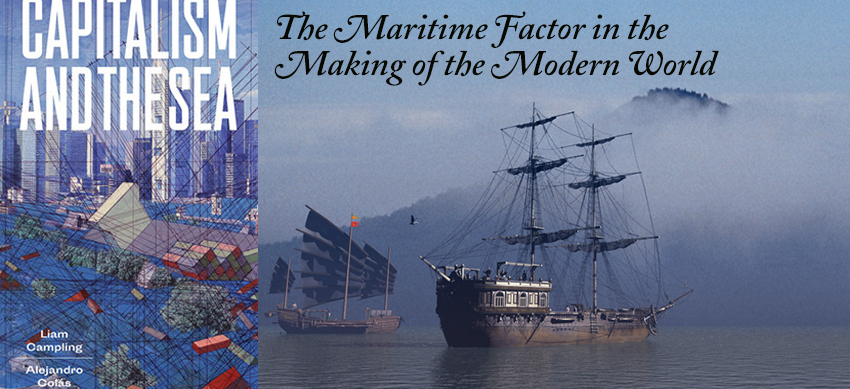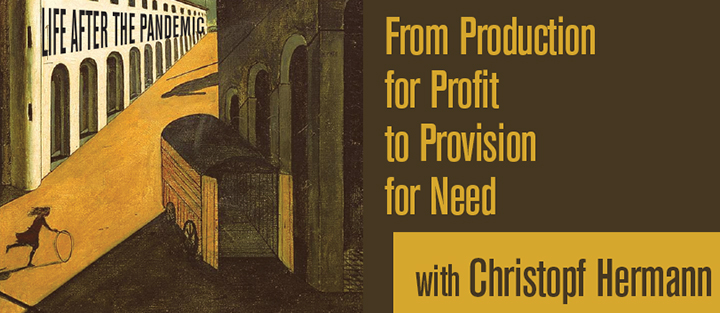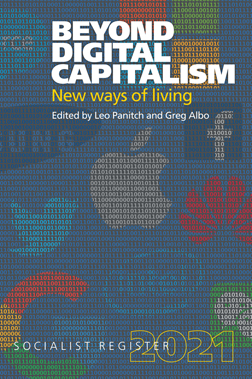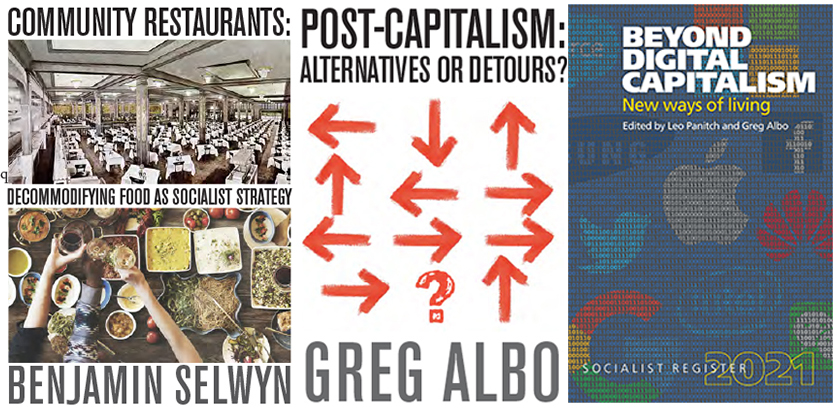Capital, Volume 1, Part 3
Online: Zoom link will be provided to registered participantsChapters 16 through 25, will trace this development and reveals new dynamics and contradictions inherent to the logic of capitalist accumulation, culminating in Chapter 25, The General Law of Capitalist Accumulation. These developmental processes continue to be played out to this day and are witnessed in the immensity of wealth for a few at one pole of humanity, poverty at another, ruthless misuse and degradation of nature, and reduction of the human subject, the producing masses of real individuals, to an alienated object for capitalist exploitation.
Friedrich Engels with Terrell Carver and Kaan Kangal
Online: Zoom link will be provided to registered participantsAll three author/editors celebrate the recent 200th birthday of Engels looking at his youthful works, his early relationship with Karl Marx, address controversy surrounding his Dialectics of Nature and give a broad reassessment of the importance of Engels pithing Marxisms, working class movements, science, philosophy and more.
Health Care, Technology, and Socialized Medicine with Pratyush and Pritha Chandra
Online: Zoom link will be provided to registered participantsFor the ecological crisis to become a ground to rethink structural transformation, it is not enough to locate it in the wreckage that capitalism accumulates. It must be understood as constitutive to capitalist social relations, having an intimate connection to the robbery of labor. It is in this sense that the particularization of these crises in the form of pathogens and impending diseases becomes crucial. This helps us to understand the ecological rift as central to everyday life and struggle in capitalism, and also to imagine a transformational class politics.
Capitalism and the Sea
Online: Zoom link will be provided to registered participantsWhile sea beds are drilled for their fossil fuels and minerals, and coastlines developed for real estate and leisure, the oceans continue to absorb the toxic discharges of carbon civilization – warming, expanding, and acidifying the blue water part of the planet in ways that will bring unpredictable but irreversible consequences for the rest of the biosphere.
Empire’s Endgame: Racism and the British State (a close reading group)
Online: Zoom link will be provided to registered participantsEmpire's Endgame maps the complex relations between empire, racist culture, political economy, and the practices of a security-oriented state seeking legitimacy in times of unbearable economic uncertainty. While the book's story unfolds in Britain, its lessons and warnings may well apply to the United States and many other crisis-ridden imperialist polities.
Socialist Register 2021: Life After the Pandemic with Christoph Hermann
Online: Zoom link will be provided to registered participantsWhile debt is essential in a profit-driven economy, it is pointless in a needs-based economy. When the goal is that everybody receives what she/he needs, there is no need to go into debt. In this presentation Christoph will present some ideas for a needs-based economy.
Creolizing Rosa Luxemburg: The Mass Strike Past and Present
Online: Zoom link will be provided to registered participantsThe speakers in this fourth session reposition Rosa Luxemburg's analysis in the contexts of the United States Civil War, the Arab Spring, and the twenty-first century migrations northward through the American hemisphere.
Capital, Volume 1, Part 3
Online: Zoom link will be provided to registered participantsChapters 16 through 25, will trace this development and reveals new dynamics and contradictions inherent to the logic of capitalist accumulation, culminating in Chapter 25, The General Law of Capitalist Accumulation. These developmental processes continue to be played out to this day and are witnessed in the immensity of wealth for a few at one pole of humanity, poverty at another, ruthless misuse and degradation of nature, and reduction of the human subject, the producing masses of real individuals, to an alienated object for capitalist exploitation.
Socialist Register 2021: Beyond Digital Capitalism (the entire series)
Online: Zoom link will be provided to registered participantsBeyond Digital Capitalism: New Ways of Living Continues on April 27 with another final session on May 2 There are tickets for each session for those who are unable to ... Read more
Dual Presentation: Community Restaurants with Benjamin Selwyn / Postcapitalism: Alternatives or Detour?
Online: Zoom link will be provided to registered participantsCommunity Restaurants: Decommodifying Food as Socialist Strategy with Benjamin Selwyn The outbreak of Covid-19 has exacerbated many of the system’s worst aspects. In the UK, the birthplace of free wage-labor based ... Read more
Capitalism and the Sea
Online: Zoom link will be provided to registered participantsWhile sea beds are drilled for their fossil fuels and minerals, and coastlines developed for real estate and leisure, the oceans continue to absorb the toxic discharges of carbon civilization – warming, expanding, and acidifying the blue water part of the planet in ways that will bring unpredictable but irreversible consequences for the rest of the biosphere.
Empire’s Endgame: Racism and the British State (a close reading group)
Online: Zoom link will be provided to registered participantsEmpire's Endgame maps the complex relations between empire, racist culture, political economy, and the practices of a security-oriented state seeking legitimacy in times of unbearable economic uncertainty. While the book's story unfolds in Britain, its lessons and warnings may well apply to the United States and many other crisis-ridden imperialist polities.
Towards a Revolution in Labor History: White Supremacism and Bourgeois Social Control
Online: Zoom link will be provided to registered participantsWhy is the US working class unorganized and suffering to a far greater extent than in other advanced capitalist societies?
Matters of State: Literature & Espionage
Online: Zoom link will be provided to registered participantsWHY SPY NOVELS? Spy novels emerged as a distinct genre around the time of World War I, coinciding with the creation of formal intelligence agencies in many countries. This was a period characterized by heightened concern on the part of rulers about national security, imperial strength, and the impending conflict of the Great War. Spy novels from the early twentieth century reflect these concerns, and generally feature secret agents and seemingly realistic tales of international intrigue. With the rise of fascism, spy novels shifted their focus to examine the dynamics of political movements within individual states, assessing their threats to the stability of the international political order. In these stories, the anxiety over the powerlessness of the individual is assuaged by the resourcefulness and ultimate success of exceptional or lucky individuals in confronting such harrowing problems as war, nuclear proliferation, and terrorism.
New York City and the Experience of Modernity
Online: Zoom link will be provided to registered participantsThis is a seminar about New York City and its people. It is not a study of architectural styles and objects, - although the physical stuff of cities does play a role -, but it is a course about the experience of the way in which modernity builds and destroys cities.
Modernity is a historical force. It is messy. In architecture history modernity is usually narrated as an interplay between the combined forces of the Industrial Revolution and capital, with social upheaval, explosive population growth and immigration as its result...











